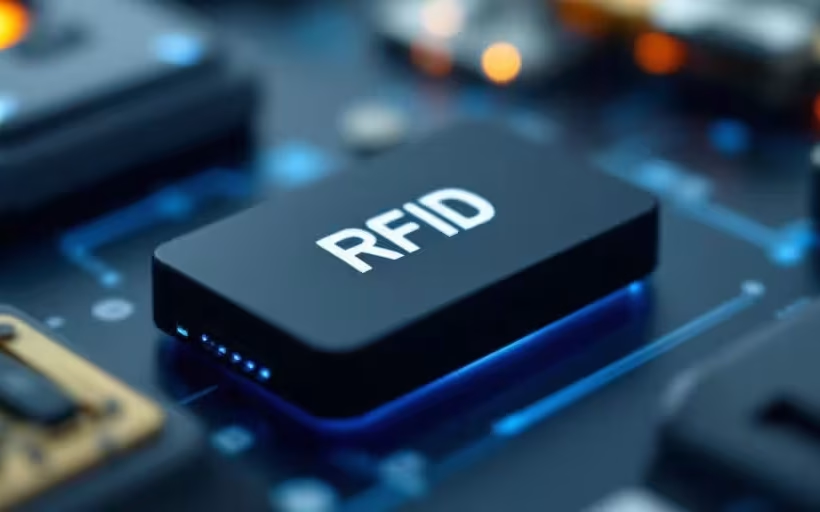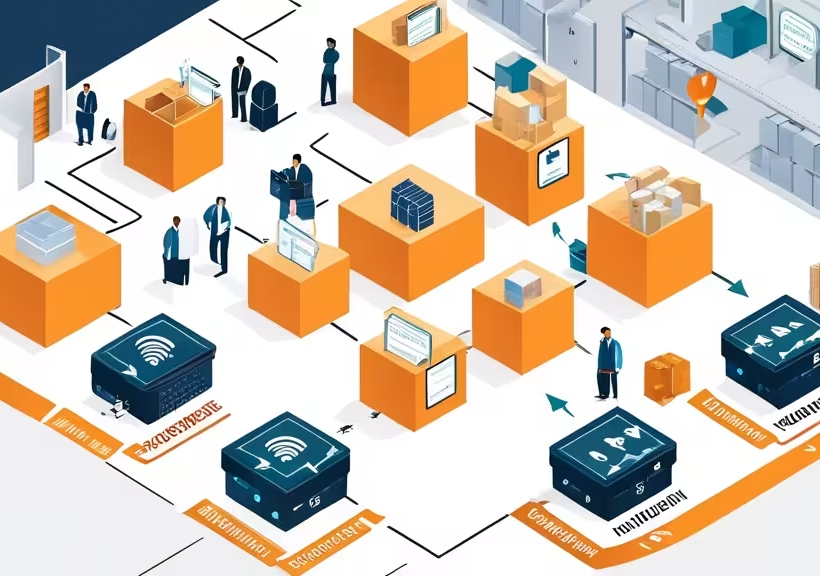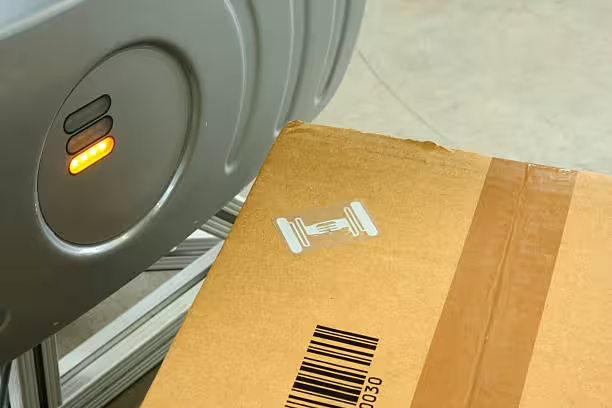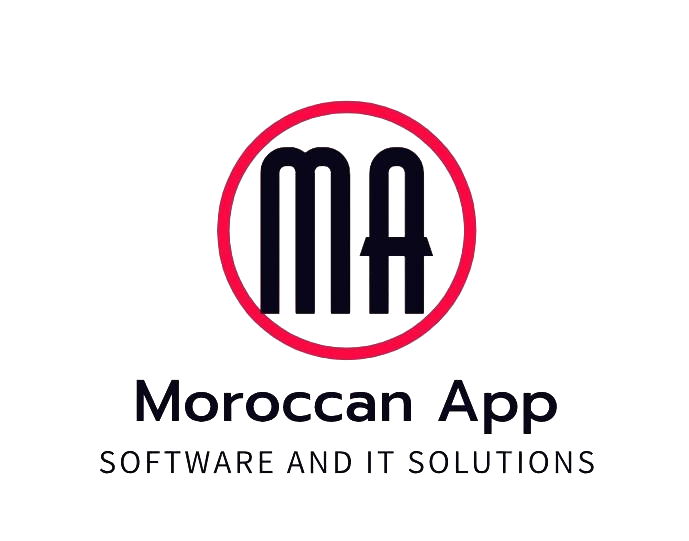- Mon - Sat 8:00 - 17:30, Sunday - CLOSED

Complete Guide to RFID in Morocco: Applications and Trends
RFID (Radio Frequency Identification) technology is booming in Morocco. It allows objects to be identified and tracked remotely using special labels. This method is increasingly used in various sectors, whether health, agriculture, or industry. This article explores the different applications of RFID in Morocco and the resulting trends. Key Points Applications de la RFID dans le Secteur Public au Maroc RFID technology is increasingly used in the public sector in Morocco, bringing significant improvements in various areas. It allows for more efficient and accurate management of public resources. Library Management In libraries, RFID makes it easier to track borrowed and returned books. This reduces errors and improves service efficiency. Here are some of the benefits: Vehicle Identification RFID is also used for vehicle identification in public services. This allows you to: Gestion Public Services Public services are using RFID to optimize asset management. For example, alkhadim etat civil also uses RFID technology to improve inventory management and asset tracking, providing real-time visibility and control. This includes: RFID is transforming the way utilities operate, making operations more transparent and effective. Use of RFID in Moroccan Industry RFID (Radio Frequency Identification) technology is transforming Moroccan industry. It helps optimize operations and improve process efficiency. Here are some key applications: Production Line Optimization Raw Material Tracking Predictive Equipment Maintenance By integrating RFID, Moroccan companies can not only improve their efficiency, but also reduce operational costs and increase their competitiveness in the market. RFID in the Agricultural Sector in Morocco RFID technology plays a crucial role in the agricultural sector in Morocco. It allows for efficient management of agricultural resources and ensures optimal traceability of products. Here are some key applications: Livestock Management Traceability of Agricultural Products Compliance with Health Standards RFID is transforming agriculture by enabling automated monitoring and proactive resource management, which is essential to meet the modern challenges of the sector. Application Benefits Livestock Management Accurate tracking, reduction of losses Product Traceability Guaranteed Quality, Assured Compliance Health Compliance Effective Monitoring, Increased Transparency RFID Technology in the Health Sector Medical Equipment Tracking RFID technology is essential for tracking medical equipment in hospitals. With RFID tags, facilities can know where their devices are at all times. This reduces losses and improves the efficiency of care. Patient Monitoring RFID wristbands are used to monitor patients in real-time. These devices help medical staff track vital signs and manage treatments. This contributes to better quality of care and rapid response in case of emergency. Medication Management RFID plays a crucial role in medication management. It helps track inventory, check expiration dates, and prevent dispensing errors. This ensures that patients receive the right medication at the right time. RFID is transforming the healthcare industry by making operations safer and more efficient. Hospitals can thus focus on what really matters: the well-being of patients. Case Studies of RFID Success in Morocco The adoption of RFID technology in Morocco has enabled several companies to improve their operations. Here are some concrete examples: Maroc Telecom and Inventory Management Royal Air Maroc et le Suivi des Bagages Label’Vie et l’Optimisation des Inventories These companies demonstrate how the use of modern technologies in inventory management has revolutionized their operations. In conclusion, RFID has proven its effectiveness in various sectors in Morocco, bringing significant improvements in inventory management and customer satisfaction. Challenges and Solutions for the Implementation of RFID in Morocco The implementation of RFID technology (Radio Frequency Identification) in Moroccan companies presents several challenges, but solutions exist to overcome them. Initial Cost and Financing Technical Complexity and Training Data Security and Protection Solutions Proposées Implementing RFID in Morocco requires a strategic approach and adequate resources, but solutions exist to help companies navigate these challenges successfully. Perspectives d’Avenir et Innovations de la RFID au Maroc RFID technology continues to transform the business landscape in Morocco, providing opportunities for innovation and improvement. Here are some key areas of development: Integration with the Internet of Things Improvements in Traceability Collaboration avec les Instituts de Recherche By exploring these areas, Moroccan companies can not only improve their efficiency, but also position themselves as leaders in the adoption of advanced technologies. In a constantly changing world, RFID technology in Morocco opens the way to new opportunities and innovations. By exploring these future prospects, you can transform your business and stay at the forefront of technology. Don’t wait any longer, visit our site to find out how we can help you integrate these innovative solutions into your strategy! Conclusion In conclusion, RFID technology represents a valuable opportunity for Moroccan companies. It improves inventory management, optimizes processes and ensures better product traceability. Various sectors, such as healthcare, agriculture and commerce, can benefit from this innovation. However, to take full advantage of RFID, it is essential that companies invest in training and implementing suitable systems. By overcoming implementation challenges, Moroccan companies can not only increase their efficiency, but also position themselves as key players in the adoption of modern technologies. Frequently Asked Questions What is RFID technology and how does it work? RFID, or radio frequency identification, uses radio waves to identify and track objects. It works through labels that contain information and readers that capture this information remotely. What are the advantages of RFID for Moroccan companies? RFID helps companies better manage theirstocks, improve product traceability and reduce losses. This makes operations more efficient. In which sectors is RFID used in Morocco? RFID is used in various sectors such as health, agriculture, industry, transportation and retail, to improve management and security. How does RFID help reduce errors in inventory management? It helps track products in real-time, which reduces human errors during inventories and improves data accuracy. What challenges do companies face when implementing RFID? The main Challenges include high initial cost, technical complexity, and data security issues. What solutions exist to overcome the challenges of RFID? Companies can seek funding, invest in staff training and adopt compatible systems to facilitate integration.

The benefits of RFID technology for Moroccan companies
Introduction to RFID Technology RFID technology (Radio Frequency Identification) is a wireless communication method that uses radio waves to identify and track objects equipped with special chips. These chips, called RFID tags, contain information that can be read remotely by RFID readers. This technology is distinguished by its ability to capture data without direct contact and without requiring line of sight, making it particularly suitable for many industrial and commercial applications. Key components of an RFID system include: RFID tags fall into two categories: Benefits of RFID technology include: These features make RFID technology a powerful tool for Moroccan companies looking to optimize their operations and improve their competitiveness in the global market. How RFID Technology Works RFID (Radio Frequency Identification) technology uses radio waves to identify and track objects automatically. It consists of three main elements: RFID tags, RFID readers and the information system. Working Process Benefits for Moroccan companies: History and evolution of RFID RFID (Radio Frequency Identification) technology has its origins in the 1940s. It was initially developed as a secure communication method during World War II. Since then, RFID has undergone several significant stages of evolution, transforming its use and extending it to various industrial sectors.

How to Use RFID in Morocco: Complete Guide
RFID technology is rapidly transforming the business landscape in Morocco. Moroccan companies are adopting this radio frequency identification solution to improve their operational efficiency. This technology is becoming a key element of digital transformation in several sectors, from agriculture to logistics. This comprehensive guide examines the practical applications of RFID in Morocco and its benefits for businesses. Readers will discover the steps to implement an RFID system, best practices for inventory management, and solutions tailored to Moroccan SMEs. The article also addresses the current challenges and future prospects of this technology in the Moroccan context. Understanding RFID Technology Radio Frequency Identification (RFID) represents a major advance in the field of automatic identification. This technology uses radio waves to store and retrieve data remotely, offering remarkable possibilities for managing and tracking objects. The RFID system is based on two essential components: tags (or labels) and readers. RFID tags, consisting of an electronic chip and an antenna, can store up to 64,000 bits of data, allowing precise and detailed identification of objects. There are three main types of RFID tags: RFID technology is distinguished by its ability to read hundreds of tags simultaneously per second, without requiring a direct line of sight between the reader and the tag. Data can not only be read but also modified or rewritten, providing exceptional flexibility in information management. A complete RFID system also integrates a middleware that processes the collected data and transmits it to the company’s information system. This architecture allows for automated and efficient data management, contributing to improved traceability and inventory management. RFID Applications in Morocco In Morocco, RFID technology is revolutionizing many sectors of activity, offering innovative solutions for operations management. In the supply chain field, this technology enables real-time visibility and efficiency, eliminating errors throughout production, warehousing and distribution operations. The main applications of RFID in Morocco include: In the industrial sector, RFID allows companies to track their products at every stage of production and marketing. RFID tags offer significantly greater storage capacity than traditional barcodes, allowing to process up to 100 tags per second. The technology is also transforming retail. Moroccan retailers are using RFID to automate their inventories and reduce stockouts. RFID gates installed at the entrance and exit of stores provide effective protection against theft. This solution not only optimizes inventory management but also significantly improves the customer purchasing experience. In logistics, Moroccan companies are seeing a significant improvement in their operational efficiency. The technology makes it possible to synchronize physical flows with information flows, providing complete traceability and better anticipation of supply chain malfunctions. Implementation of an RFID system Implementing an RFID system requires a methodical and well-planned approach to ensure its success. Companies should follow a structured process that begins with a thorough pre-study phase to choose the RFID technology that best suits their specific needs. Essential implementation steps include: To ensure successful integration, several critical factors must be considered: End-user involvement is crucial, because the best technological system only works if users comply with its operating mode. Success is based on the combination of three fundamental parameters: the choice of the appropriate RFID standard, the establishment of a precise operating mode, and effective change management. The reliability rate of the system can be optimized thanks to a well-defined and integrated operating mode. Companies must also plan the modification of the activity’s IT management system and promote the rapprochement of several actors around the RFID project. Challenges and future prospects of RFID in Morocco Despite its transformative potential, the deployment of RFID in Morocco faces several significant challenges. The implementation cost remains a major obstacle, with RFID tags costing between ten cents and one euro, five to ten times more expensive than traditional barcodes. Key technical challenges include: Nevertheless, the future prospects are promising. The market for IT equipment for logistics in Morocco is experiencing an impressive growth of 30% to 40% per year. The country’s strategic geographical position, including its proximity to the Eurozone, offers significant opportunities for the expansion of RFID technology. Environmental ambitions are also supporting RFID adoption, with national targets to reduce CO2 emissions by 35%. This technology is perfectly aligned with the national strategy for the development of logistics competitiveness, which emphasizes modernization and operational efficiency. The Tanger-Med port plays a crucial role in this transformation, serving as a strategic hub for the flow of goods to Europe, America, West Africa and Asia. This infrastructure, combined with the flexibility of the Moroccan workforce, positions Morocco as a key player in the adoption of RFID technologies on a regional scale. Conclusion RFID technology marks a decisive step in the modernization of Moroccan companies. Radio frequency identification solutions demonstrate their added value across various sectors, from inventory management to product security. The positive results observed in companies that have adopted this technology confirm its essential role in improving productivity and reducing operational costs. Morocco is positioning itself as a major player in the adoption of RFID technologies in Africa, driven by its strategic geographical location and modern infrastructure. Despite the initial implementation challenges, future prospects remain promising, supported by the continued growth of the logistics market and government initiatives in favor of digital transformation. Moroccan companies that are investing in RFID today are giving themselves the means to effectively meet the growing demands for traceability and operational efficiency. FAQs Q: How can I use an RFID card?A: To use an RFID card, simply pass it in front of an RFID reader. This contactless system allows, for example, to recharge an electric vehicle while securing access and payment. Q: What are the steps to activate RFID on a device?A: To activate RFID, you must first activate the network on a smartphone via the Settings/Networks menus. Then, install an application like NFC Tools on Android, bring the smartphone within 10 cm of the RFID tag and program the desired action. Q: How does RFID access work?A: The RFIDpassive, which does not have a battery, works in read-only mode. The reader sends an electromagnetic signal to



